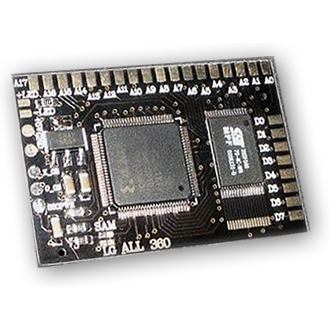Mr Modchips Official Court Ruling Released
The court ruling for the Mr Modchips victory in the UK high court has been officially released to the public.
Points of note are:
Quote:
The prosecution contended that Mr Higgs was providing devices which enabled the circumvention of ETMs. But it is very important to understand the factual basis of the contention. It was not that the use of a modified console to play a game from an infringing CD-ROM itself involved any infringement of copyright. No attempt was made to prove that when such a CD-ROM is placed in a console, the console reads into its memory (particularly its random access memory, its "RAM") the program and copyright material included with it such as images and sound.
Quote:
# If such had been contended and proved (as it would seem very probable it could have been), it is difficult to see what defence there might have been. After all s.17 of the Act provides:
(1) The copying of the work is an act restricted by the copyright in every description of copyright work; and references in this Part to copying and copies shall be construed as follows.
(2) Copying in relation to a literary, dramatic, musical or artistic work means
reproducing the work in any material form.
This includes storing the work in any medium by electronic means.
(3) ….
(4) Copying in relation to a film or broadcast includes making a photograph of the whole or any substantial part of any image forming part of the film or broadcast.
(5) …
(6) Copying in relation to any description of work includes the making of copies which are transient or are incidental to some other use of the work.
It follows that the making of transient copies of copyright material into a RAM is a restricted act. In this context taking even a single frame of a cinematograph film is also probably an infringement (see Spelling Goldberg v BPC Publishing [1981] RPC 225). Putting it another way, the playing of a pirate game on a console would itself be an infringement. And even a narrow interpretation of ETM would seemingly catch that. Mr Vaitilingam, Counsel for Mr Higgs, whilst not positively so accepting, acknowledged that he did not see how it could be otherwise.
Quote:
........We say that essentially for the same reasons as the High Court of Australia gave in Stevens v Sony [2005] HCA 58, 21 ALR 447.
# Stevens was a civil action under the Australian provisions corresponding to those in the UK about circumvention measures. The case turned on whether modchips were a "technological protection measure" within the meaning of the Australian Act. The definition of this phrase read as follows:
technological protection measure means a device or product, or a component incorporated into a process, that is designed, in the ordinary course of its operation, to prevent or inhibit the infringement of copyright in a work or other subject-matter by either or both of the following means:
(a) by ensuring that access to the work or other subject matter is available solely by use of an access code or process (including decryption, unscrambling or other transformation of the work or other subject-matter) with the authority of the owner or exclusive licensee of the copyright;
(b) through a copy control mechanism."
Quote:
# In the end, therefore, one comes back to the UK Act. Is it enough if the technological measure is a discouragement or general commercial hindrance to copyright infringement or must it be a measure which physically prevents it? To our minds the position is clear – it is the latter. Neither the Directive nor the Act would have been drafted in the way that they are if such a general form of hindrance was enough.
# It is for those reasons we quashed the convictions. Mr Higgs is a fortunate man in that it may well be that if the legislation had been less complex and/or the Crown had had greater opportunity to consider the details of copyright law the case would have been proved on the basis that merely playing a pirated game involves making a copy in the console and thus involves infringement. He may also be fortunate that, at least this far, he has not been sued in the civil courts. There the procedure is apt to be much faster, technical slip-ups in evidence can generally be readily cured before final judgment and the remedies of damages, an account of profits, injunction and legal costs are readily obtainable. Breach of an injunction, if serious, can of course itself lead to imprisonment.
# We were asked to certify that this case involves a question of law of general public importance. We are willing so to do. The question (agreed by Counsel) which we certify is:
Do the provisions of section 296ZF of the Copyright Designs and Patents Act 1988 in relation to "effective technological measures" apply to devices incorporated into computer games consoles and computer games which do not prevent counterfeit copies being made of such games but which do prevent the counterfeit copies from being played on games consoles?
The full ruling can be found here
http://www.bailii.org/ew/cases/EWCA/Crim/2008/1324.html" onclick="window.open(this.href);return false;

